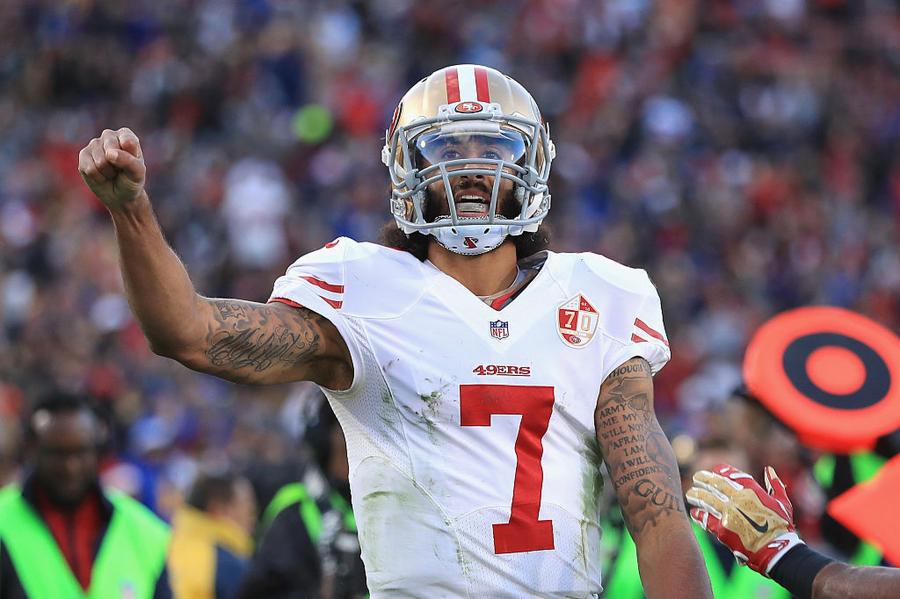For the past two years, Colin Kaepernick has been a major voice of protest against social injustice. But after hitting free agency last spring, no NFL team has signed him to a deal. Kaepernick filed a grievance against the NFL, claiming the league's owners conspired to keep him off their rosters.
And now, the league is preparing for a legal battle after arbitrator Stephen B. Burbank voted to send Kaepernick's grievance to trial.
The decision means there was enough evidence of collusion to continue the grievance filing. Owners, coaches, and team executives will be asked to testify during the season.
Kaepernick led the San Francisco 49ers to a Super Bowl appearance during the 2013 season, and still put up fairly productive numbers in his last season with the team.

Sean M. Haffey/Getty Images
During that 2016 season, Kaepernick began a series of protests across the league by kneeling during the national anthem. Though he's claimed he was protesting police brutality and racial inequality, his actions have proven divisive across the country.
Kaepernick's case states that owners violated the collective bargaining agreement with players by working together to keep the quarterback off their teams.
Kaepernick's former teammate, safety Eric Reid, filed a similar grievance earlier this year. Reid joined Kaepernick in his protests in San Francisco. Reid's grievance is still pending, and he remains unsigned.
While the battle between Kaepernick and the league continues, the NFL still hasn't determined a punishment for kneeling or demonstrating during the national anthem – or if players should be punished at all.
The discussion around protests likely won't go away as the NFL kicks off this month. And while that makes the league uneasy, it certainly adds extra interest around the sport.
/2019/02/GettyImages-603553668.jpg)
/2017/10/GettyImages-626167674.jpg)
/2013/01/colin-kaepernick2.jpg)
/2017/10/colin.jpg)
/2016/09/GettyImages-598586582.jpg)
/2019/03/GettyImages-886622232.jpg)
/2019/11/GettyImages-1094653148.jpg)
/2018/03/GettyImages-821622848.jpg)
/2020/06/taylor.png)
/2020/04/Megan-Fox.jpg)
/2017/02/GettyImages-528215436.jpg)
/2009/11/George-Clooney.jpg)
/2019/04/rr.jpg)
/2020/01/lopez3.jpg)
/2020/02/Angelina-Jolie.png)
/2009/09/Cristiano-Ronaldo.jpg)
/2009/09/Jennifer-Aniston.jpg)
/2019/10/denzel-washington-1.jpg)
/2009/09/Brad-Pitt.jpg)
:strip_exif()/2009/09/P-Diddy.jpg)
:strip_exif()/2015/09/GettyImages-476575299.jpg)